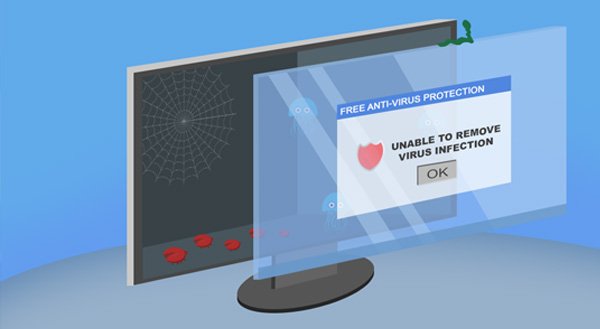ALERT: YOUR ANTIVIRUS MAY BE SCREWING YOU

Using common sense is the most excellent approach to avoid a computer virus, but that doesn't mean you won't be attacked. For example, during flu season, even the most cautious user might become infected in an instant, spreading the virus faster than a sneeze. Because you don't know when you'll be attacked, antivirus software is still the first install item on all systems.
Should you go with a free or paid antivirus?
Advertising
The free antivirus software will press for payment, much like a free app that makes money from in-app sales. Then, popup boxes will nag you to upgrade to the paid version at least once a day. Some free services will also try to change your browser's default home page and search engine, inconvenient. Paid options are more courteous and largely unnoticed unless an issue has been found.
Effectiveness
It's reasonable to expect your antivirus to detect malware, and research shows that free and paid antivirus programs catch about the same number of known infections in a head-to-head comparison. And therein lays the catch: free antivirus must have added a virus to its database before it can be detected. Antivirus software paid for is more likely to detect and stop new viruses. In addition, it detects suspicious behavior, source, and qualities, which is a considerably more successful detection technique.
Features
Free antivirus software is frequently derived from the premium version, removing all but the most essential features. You can anticipate additional features like spam filters, firewalls, parental controls, and safe online browsing in your subscription version. Some commercial antivirus programs will also update your other software, resulting in a more secure defense against threats. For example, you can come across a malicious image file that exploits a flaw in your PDF program. Unfortunately, hackers have progressed beyond simple techniques, and it's no longer just a matter of avoiding email attachments.
Support
Because they're free, free antivirus choices are the most popular. Obviously, this also means that there is usually no help accessible. If a problem or conflict arises with another program, you may lose protection until the issue is fixed. Phone assistance is frequently included with paid antivirus choices. It is available to assist with issues ranging from installation to system diagnostics.
Ease of use
This may or may not be a significant worry, depending on how you use your computer. Free antivirus programs are simple to set up and use, but they are limited in functionality. You can't choose what it monitors or how it reacts because they come as-is. For example, users may need to disable ALL safeguards to install a network game occasionally. Paid versions are more likely to let you customize how it works by turning features on and off as needed.
Conclusion
Free antivirus is fine for essential protection, those with a limited budget or those with an older PC. In such cases, something is always better than nothing. But I generally recommend you go with a paid antivirus to defend you from the new attacks released daily and to make sure you've got a solid defense that will make a real difference to your digital security.
I like to write these helpful articles for the everyday user. However, if you are a Renegade IT or Business professional and want to know more about ITSM processes and IT policy, hit me up at ITSM RHINO.